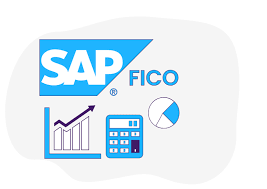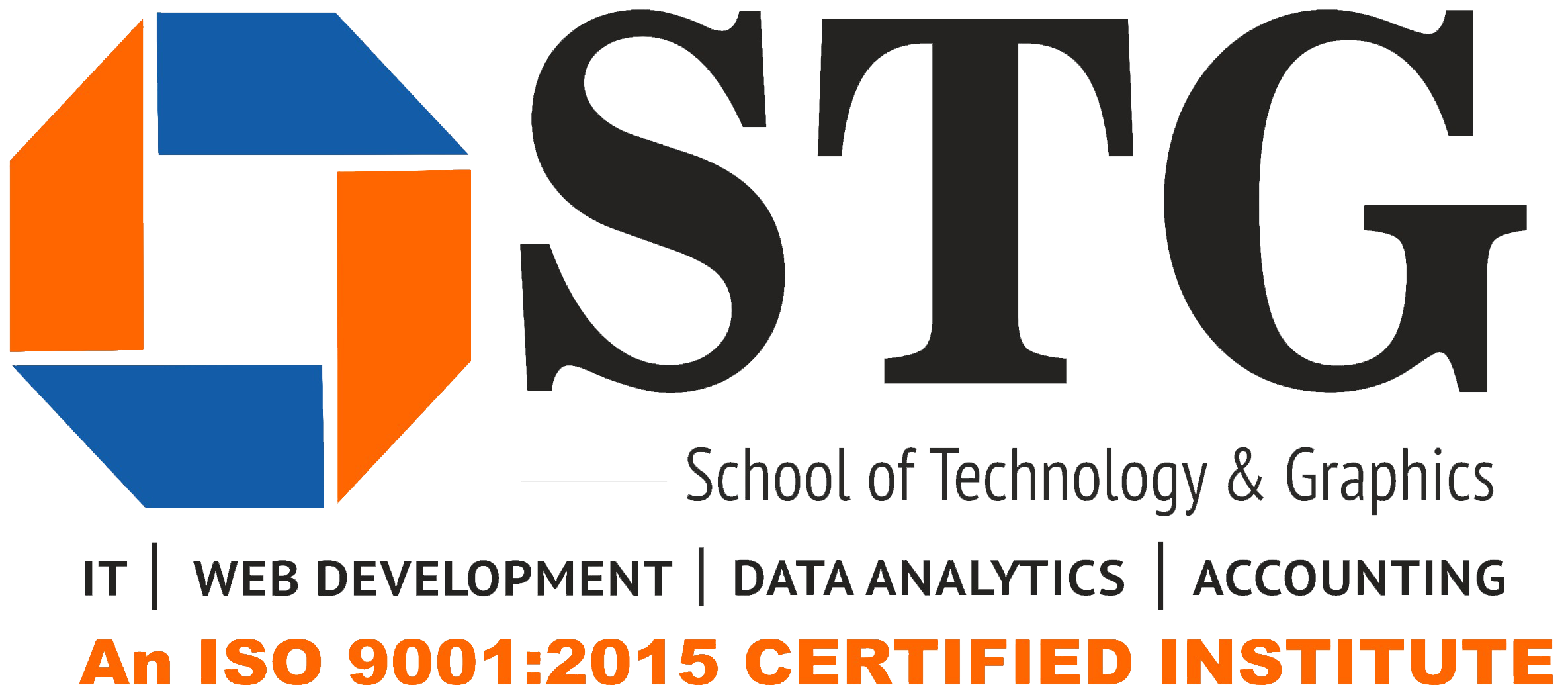
SAP FICO
"This course is ideal for individuals aiming for careers in finance, accounting, and SAP consulting."
3 Months
2 Weekly Live Sessions
18 Classes
Placement Assistance
SAP FICO content focuses on two core components: Financial Accounting (FI), which handles external financial reporting and accounting, and Controlling (CO), which manages internal costs and performance monitoring. Key elements include organizational structures, general ledger accounting, accounts payable and receivable, bank accounting, asset accounting, and treasury management within FI, and cost centre accounting, profitability analysis, and product costing in CO. The content also covers integration with other SAP modules like MM and SD, configuration of global settings, and generating financial reports and dashboards.
SAP FI (Financial Accounting)
-
Organizational Structure: Setting up company codes, business areas, and controlling areas.
-
General Ledger (G/L) Accounting: Managing master data, chart of accounts, fiscal year, posting periods, and document types.
-
Accounts Payable (AP) & Accounts Receivable (AR): Processing vendor and customer transactions.
-
Bank Accounting: Managing bank master data and bank statements.
-
Asset Accounting: Handling fixed asset transactions.
-
Tax and GST Configuration: Setting up tax codes and integrating Goods and Services Tax (GST).
-
Treasury and Investment Management: Managing cash flow, investments, and treasury operations.
-
Reporting: Generating financial reports, such as balance sheets, income statements, and cash flow statements.
SAP CO (Controlling)
-
Basic Settings for Controlling: Configuring controlling areas and maintaining internal accounting structures.
-
Cost Centre Accounting: Tracking costs associated with specific departments or units within the organization.
-
Profitability Analysis (PA): Analysing profitability by product, customer, or market segment.
-
Product Costing: Estimating, planning, and controlling the costs of products.
-
Internal Orders: Managing the costs of specific activities or projects.
-
Budgeting: Planning, allocating, and monitoring budgets across different cost objects.
SAP MM (Materials Management)
The SAP MM (Materials Management) module syllabus covers a wide range of topics related to procurement and inventory management processes within an SAP system. Key areas include master data, purchasing, inventory management, valuation, and integration with other modules. The syllabus also delves into configuration aspects, such as organizational levels and settings, to enable end-to-end procurement cycles.
Detailed Breakdown:
-
Introduction to SAP MM:
-
Overview of SAP ERP and the Materials Management module.
-
Understanding the procurement cycle within SAP.
-
Overview of ASAP methodology and its application in SAP implementation.
-
Configuring organizational levels (company code, plant, storage location, purchasing organization, etc.).
-
Master Data Management:
-
Material master data (creation, maintenance, and usage).
-
Vendor master data (creation, maintenance, and usage).
-
Purchase info records, source lists, and outline agreements.
-
Purchasing:
-
Purchase requisition creation and processing.
-
RFQ (Request for Quotation) and quotation processing.
-
Purchase order creation, release procedures, and follow-up actions.
-
External services management (ESM) and service entry sheets.
-
Inventory Management:
-
Goods receipt (GR) and goods issue (GI) processes.
-
Transfer postings, stock transfers, and consignment processes.
-
Special stock and special procurement types.
-
Physical inventory procedures and cycle counting.
-
Batch management and shelf-life expiration date (SLED) handling.
-
Valuation and Account Determination:
-
Material valuation methods (standard price, moving average price).
-
Account determination configuration and its impact on financial postings.
-
Integration with Financial Accounting (FI) and Controlling (CO) modules.
-
Material Requirements Planning (MRP):
-
Overview of MRP and its role in materials planning.
-
MRP procedures and parameters.
-
Integration with other modules for planning and procurement.
-
Invoice Verification:
-
Invoice processing (invoices, credit memos, and subsequent debits/credits).
-
Invoice variances and blocking mechanisms.
-
Integration with Financial Accounting (FI) for invoice postings.
-
Logistics Invoice Verification:
-
Configuration and processing of logistics invoices.
-
Integration with the MM module for invoice matching and payment processing.
-
Other Key Topics:
-
Reports and analytics within SAP MM.
-
Customizing options for specific business requirements.
-
Integration with other SAP modules like Sales and Distribution (SD), Production Planning (PP), and Plant Maintenance (PM).
SAP SD (Sales and Distribution)
An SAP Sales and Distribution (SD) course covers the entire sales process, including Sales and Distribution Organizational Structures, Master Data (Customers, Materials), Sales Processes (Inquiries, Orders, Quotations), Pricing and Conditions, Shipping and Deliveries, Billing and Invoicing, Credit Management, and special scenarios like Consignment and Third-Party Orders. The goal is to provide comprehensive knowledge for managing sales operations, from initial customer contact through to payment, and understand how SD integrates with other SAP modules like Financial Accounting (FI) and Materials Management (MM).
Course Breakdown:
-
Introduction to SAP and the SD Module:
-
Understanding the purpose of SAP ERP and the specific role of the SD module.
-
Familiarization with core business processes in sales and distribution.
-
Organizational Structures:
-
Configuration of organizational units like Sales Organization, Distribution Channel, Division, Sales Office, and Sales Group.
-
Assignment of these units to create a functional structure within SAP.
-
Master Data:
-
Business Partners: Creating and managing customer and vendor data.
-
Material Master Data: Managing information about products.
-
Customer-Material Info Records: Customer-specific data for materials.
-
Sales and Basic Functions:
-
Sales Inquiry and Quotation: Processes for managing initial customer inquiries and providing price quotes.
-
Sales Orders: Creating and processing various sales order types.
-
Pricing and Conditions: Understanding pricing techniques, condition types, and pricing procedures.
-
Credit Management: Configuring credit checks and managing customer credit limits.
-
Availability Check: Introduction to checking if materials are available for a sales order.
-
Shipping and Delivery:
-
Outbound delivery processing, including picking, packing, and goods issue.
-
Integration with warehouse management for efficient delivery.
-
Billing and Invoicing:
-
Creating invoices and credit/debit memos.
-
Copy control mechanisms between different sales documents.
-
Special Sales Scenarios:
-
Consignment Processes: Handling goods that are on loan to customers.
-
Third-Party Order Processing: Fulfilling orders directly from suppliers.
-
Returns Processing: Managing the process of customer returns.
-
Foreign Trade: Handling export/import scenarios.
-
Integration and Advanced Topics:
-
Integration with Other Modules: Understanding how SD interacts with SAP FI (Financial Accounting) and MM (Materials Management).
-
Reporting: Introduction to sales and distribution reporting.
-
Batch Management: Managing products in batches.
-
Variant Configuration: Configuring highly customized products.




